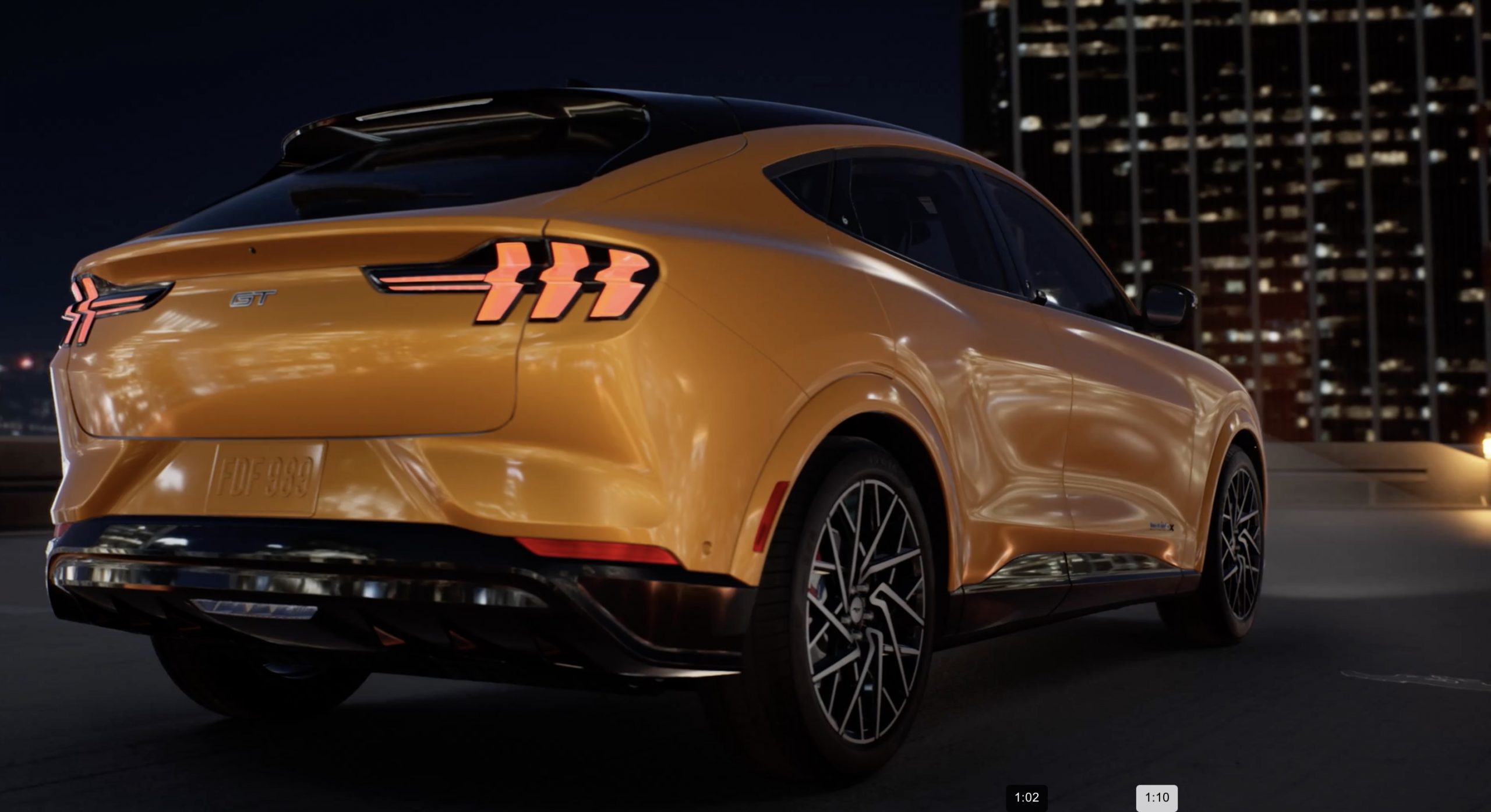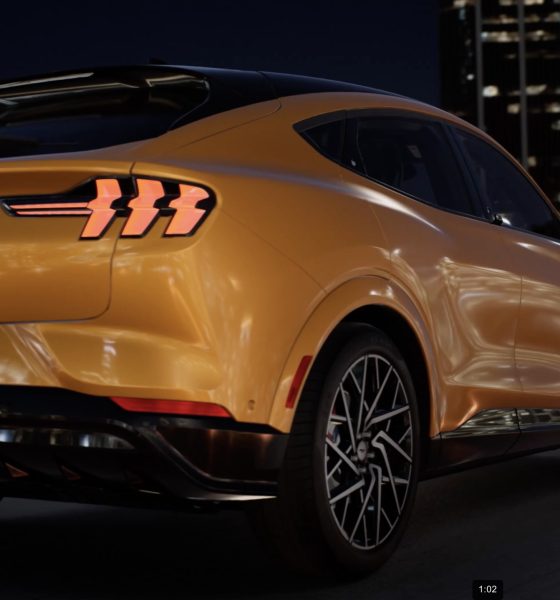Consumer Reports has released the results from its largest ever national survey, and it found that over a third of Americans are interested in buying electric vehicles.
There is reason to be optimistic about an EV future when Consumer Reports (CR) says that “36% of Americans plan to buy or lease an electric-only vehicle or are seriously considering doing so.” However, the survey of 8,027 Americans nationwide also found that people were surprisingly naive regarding the costs of EV ownership, the capabilities of the newest EVs, and even government incentives.
Of the 36% of people interested in buying an electric vehicle, the top reasons for their interest included low charging costs (33%), lower lifetime vehicle costs (31%), and lower maintenance costs (28%). Around 14% of the respondents were part of the most interested group of buyers, a group that has grown by 4% since a similar CR survey in 2020.
Compared to a Texas poll that we covered previously in Teslarati, Consumer Reports‘ poll showed a lower level of interest. They were also almost entirely focused on the cheaper cost of ownership, instead of new technologies or the environmental impact of EVs.
CR notes that data from Cox Automotive last quarter showed that EV sales rose by 76%. This seems to match sales reports from manufacturers this quarter, confirming that interest in EVs is increasing. However, CR put a unique focus on Americans uninterested in buying an EV for their next vehicle.
Unlike the Texas poll that showed that a sizable group simply preferred gas/diesel vehicles, CR did not replicate this result and found three other reasons why consumers were wary of electric cars. About 61% of those who were uninterested in EVs cited a lack of charging infrastructure, 55% cited range anxiety, and 52% said the cost of buying and or maintaining an EV was too high.
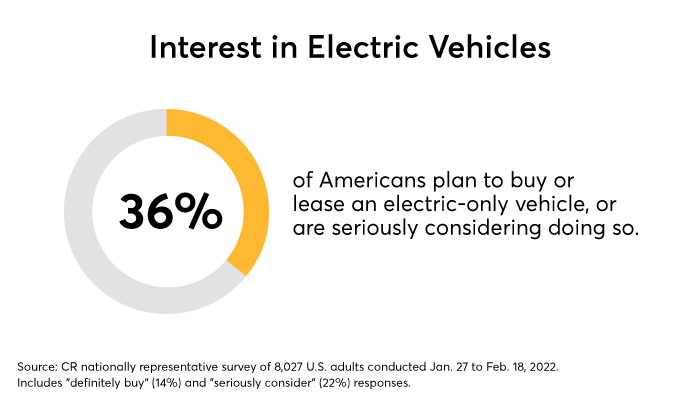
While it is unclear if the consumers surveyed were aware of current charging infrastructure or the range of newer electric vehicles, other reasons were often related to a lack of knowledge.
Most predominantly, 46% of respondents were unaware of Federal and State EV purchasing incentives, a factor that could have influenced whether they could afford an EV. Furthermore, while upfront costs for many EVs remain high, the maintenance costs of these vehicles are far lower than that of their ICE counterparts, once again showing that many consumers are unaware of the benefits of EV ownership.
On top of these facts, the demographic that was one of the most likely to be considering buying an EV was people who had either ridden in or had driven EVs within the past year. Only only 7% of respondents have driven an EV in the past year, yet these people account for over 20% of those who are interested in buying EVs. This shows that often people lack the interaction with EVs that could prove pivotal to changing their minds on whether these vehicles are viable for their personal use.
Other demographics that were more likely to buy EVs include men, younger people, people who live in urban areas, those with higher levels of education, and people with higher incomes.
The path forward is clear for auto manufacturers who want to bring more customers in to buy electric vehicles. They must address their concerns about cost, allow potential customers to test drive and experience EV charging, and make them aware of incentives that may help them purchase a vehicle. Each of these tactics will become far more important as more and more manufacturers begin offering EVs, bringing in a wider (and sometimes less knowledgeable) audience.
What do you think of the article? Do you have any comments, questions, or concerns? Shoot me an email at william@teslarati.com. You can also reach me on Twitter @WilliamWritin. If you have news tips, email us at tips@teslarati.com!

Elon Musk
Elon Musk’s net worth is nearing $800 billion, and it’s no small part due to xAI
A newly confirmed $20 billion xAI funding round valued the business at $250 billion, adding an estimated $62 billion to Musk’s fortune.
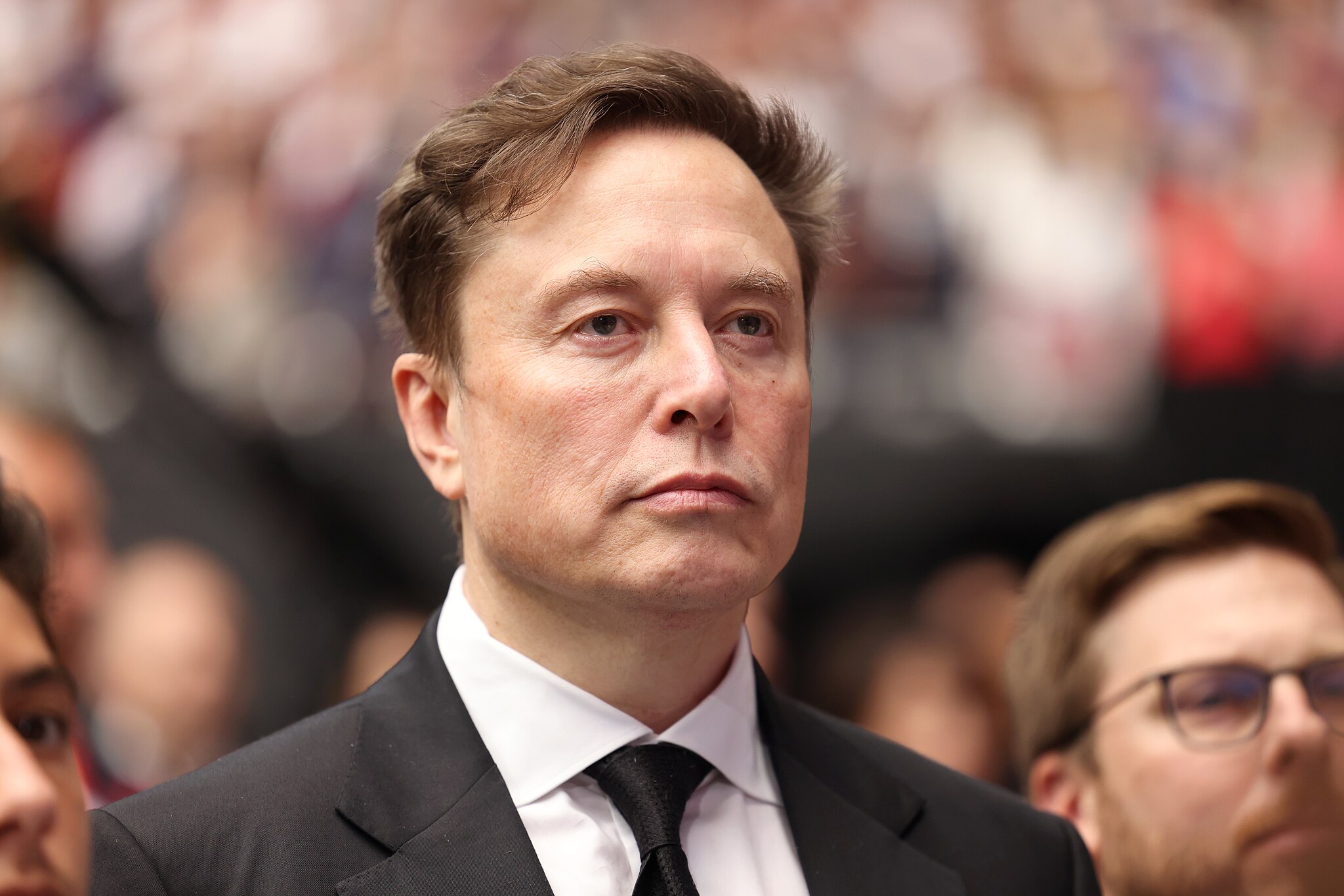
Elon Musk moved within reach of an unprecedented $800 billion net worth after private investors sharply increased the valuation of xAI Holdings, his artificial intelligence and social media company.
A newly confirmed $20 billion funding round valued the business at $250 billion, adding an estimated $62 billion to Musk’s fortune and widening his lead as the world’s wealthiest individual.
xAI’s valuation jump
Forbes confirmed that xAI Holdings was valued at $250 billion following its $20 billion funding round. That’s more than double the $113 billion valuation Musk cited when he merged his AI startup xAI with social media platform X last year. Musk owned roughly 49% of the combined company, which Forbes estimated was worth about $122 billion after the deal closed.
xAI’s recent valuation increase pushed Musk’s total net worth to approximately $780 billion, as per Forbes’ Real-Time Billionaires List. The jump represented one of the single largest wealth gains ever recorded in a private funding round.
Interestingly enough, xAI’s funding round also boosted the AI startup’s other billionaire investors. Saudi investor Prince Alwaleed Bin Talal Alsaud held an estimated 1.6% stake in xAI worth about $4 billion, so the recent funding round boosted his net worth to $19.4 billion. Twitter co-founder Jack Dorsey and Oracle co-founder Larry Ellison each owned roughly 0.8% stakes that are now valued at about $2.1 billion, increasing their net worths to $6 billion and $241 billion, respectively.
The backbone of Musk’s net worth
Despite xAI’s rapid rise, Musk’s net worth is still primarily anchored by SpaceX and Tesla. SpaceX represents Musk’s single most valuable asset, with his 42% stake in the private space company estimated at roughly $336 billion.
Tesla ranks second among Musk’s holdings, as he owns about 12% of the EV maker’s common stock, which is worth approximately $307 billion.
Over the past year, Musk crossed a series of historic milestones, becoming the first person ever worth $500 billion, $600 billion, and $700 billion. He also widened his lead over the world’s second-richest individual, Larry Page, by more than $500 billion.
News
Tesla Cybercab sighting confirms one highly requested feature
The feature will likely allow the Cybercab to continue operating even in conditions when its cameras could be covered with dust, mud, or road grime.

A recent sighting of Tesla’s Cybercab prototype in Chicago appears to confirm a long-requested feature for the autonomous two-seater.
The feature will likely allow the Cybercab to continue operating even in conditions when its cameras could be covered with dust, mud, or road grime.
The Cybercab’s camera washer
The Cybercab prototype in question was sighted in Chicago, and its image was shared widely on social media. While the autonomous two-seater itself was visibly dirty, its rear camera area stood out as noticeably cleaner than the rest of the car. Traces of water were also visible on the trunk. This suggested that the Cybercab is equipped with a rear camera washer.
As noted by Model Y owner and industry watcher Sawyer Merritt, a rear camera washer is a feature many Tesla owners have requested for years, particularly in snowy or wet regions where camera obstruction can affect visibility and the performance of systems like Full Self-Driving (FSD).
While only the rear camera washer was clearly visible, the sighting raises the possibility that Tesla may equip the Cybercab’s other external cameras with similar cleaning systems. Given the vehicle’s fully autonomous design, redundant visibility safeguards would be a logical inclusion.
The Cybercab in Tesla’s autonomous world
The Cybercab is Tesla’s first purpose-built autonomous ride-hailing vehicle, and it is expected to enter production later this year. The vehicle was unveiled in October 2024 at the “We, Robot” event in Los Angeles, and it is expected to be a major growth driver for Tesla as it continues its transition toward an AI- and robotics-focused company. The Cybercab will not include a steering wheel or pedals and is intended to carry one or two passengers per trip, a decision Tesla says reflects real-world ride-hailing usage data.
The Cybercab is also expected to feature in-vehicle entertainment through its center touchscreen, wireless charging, and other rider-focused amenities. Musk has also hinted that the vehicle includes far more innovation than is immediately apparent, stating on X that “there is so much to this car that is not obvious on the surface.”
News
Tesla seen as early winner as Canada reopens door to China-made EVs
Tesla had already prepared for Chinese exports to Canada in 2023 by equipping its Shanghai Gigafactory to produce a Canada-specific version of the Model Y.
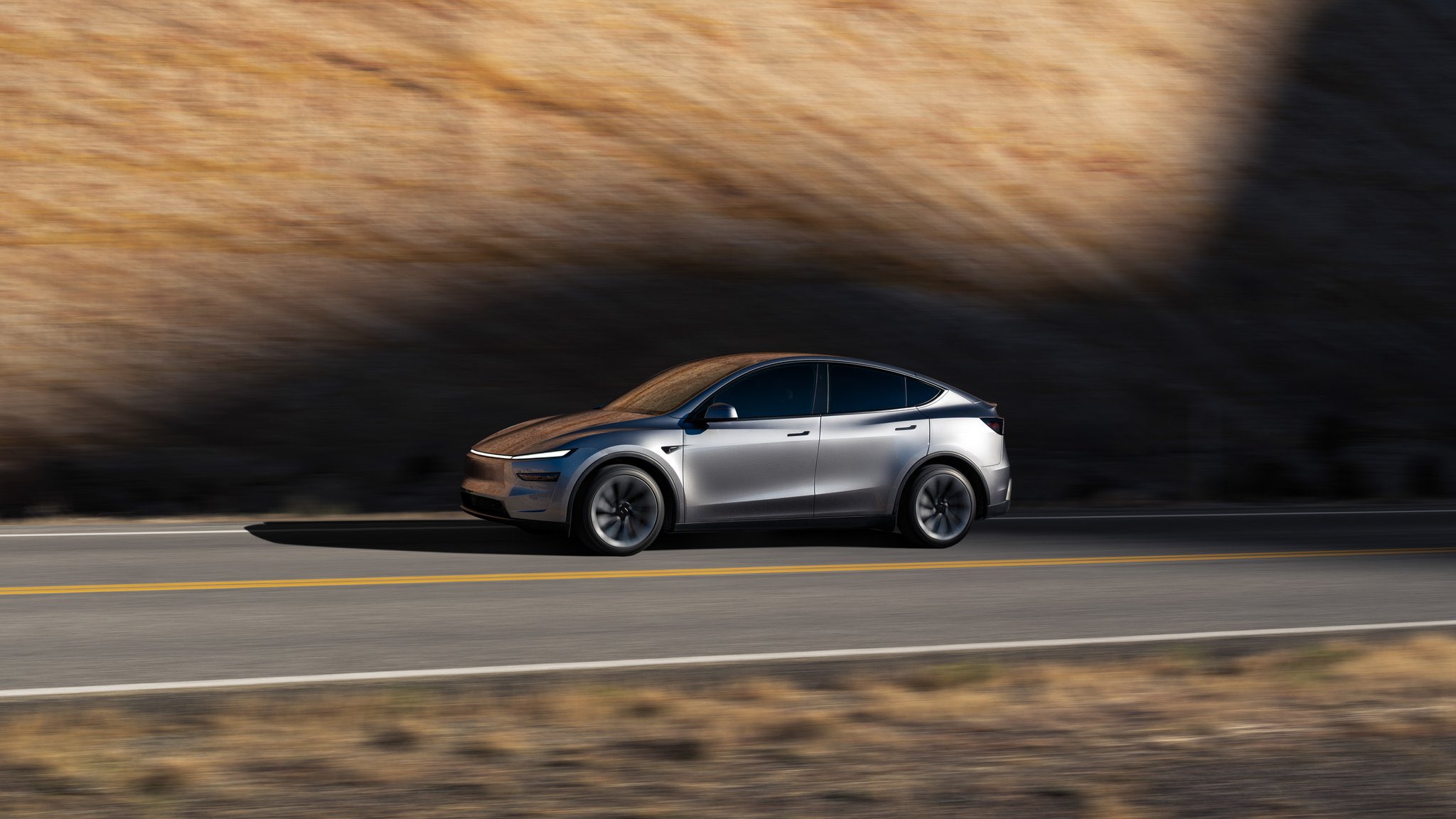
Tesla seems poised to be an early beneficiary of Canada’s decision to reopen imports of Chinese-made electric vehicles, following the removal of a 100% tariff that halted shipments last year.
Thanks to Giga Shanghai’s capability to produce Canadian-spec vehicles, it might only be a matter of time before Tesla is able to export vehicles to Canada from China once more.
Under the new U.S.–Canada trade agreement, Canada will allow up to 49,000 vehicles per year to be imported from China at a 6.1% tariff, with the quota potentially rising to 70,000 units within five years, according to Prime Minister Mark Carney.
Half of the initial quota is reserved for vehicles priced under CAD 35,000, a threshold above current Tesla models, though the electric vehicle maker could still benefit from the rule change, as noted in a Reuters report.
Tesla had already prepared for Chinese exports to Canada in 2023 by equipping its Shanghai Gigafactory to produce a Canada-specific version of the Model Y. That year, Tesla began shipping vehicles from Shanghai to Canada, contributing to a sharp 460% year-over-year increase in China-built vehicle imports through Vancouver.
When Ottawa imposed a 100% tariff in 2024, however, Tesla halted those shipments and shifted Canadian supply to its U.S. and Berlin factories. With tariffs now reduced, Tesla could quickly resume China-to-Canada exports.
Beyond manufacturing flexibility, Tesla could also benefit from its established retail presence in Canada. The automaker operates 39 stores across Canada, while Chinese brands like BYD and Nio have yet to enter the Canadian market directly. Tesla’s relatively small lineup, which is comprised of four core models plus the Cybertruck, allows it to move faster on marketing and logistics than competitors with broader portfolios.
